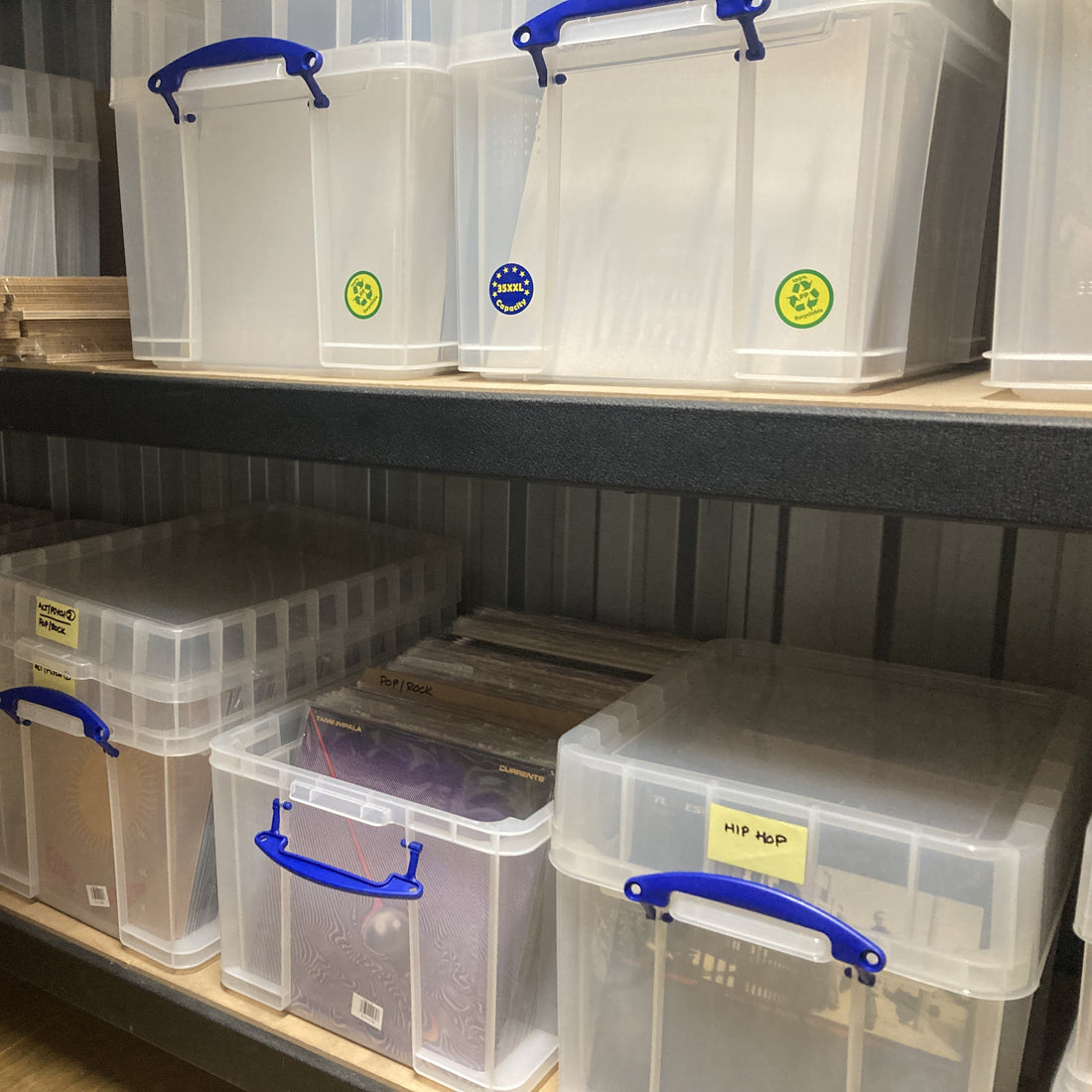Storing Vinyl Records

Share
When it comes to storing your records, it's important to take the necessary steps to preserve their quality and longevity. In this blog post, we will explore the best practices for storing your records and answer some frequently asked questions.
Why is proper storage important?
Proper storage is crucial for maintaining the quality of your records. Exposure to heat, humidity, dust, and sunlight can all have detrimental effects on the condition of your records. By following the right storage techniques, you can prevent warping, scratching, and other forms of damage that can compromise the sound quality and value of your collection.
What is the ideal storage environment?
The ideal storage environment for records is a cool, dry, and dark place. Temperature fluctuations can cause records to expand and contract, leading to warping. High humidity levels can promote the growth of mold and mildew, which can damage the record sleeves and covers. Sunlight can fade album artwork and degrade the vinyl itself. Therefore, it is best to store your records in a room with controlled temperature and humidity levels, away from direct sunlight.
How should I store vinyl records?
Vinyl records should be stored vertically, with the records standing upright. This helps prevent warping and ensures that the weight of the records is evenly distributed. Avoid stacking records horizontally, as this can lead to warping and damage. Additionally, it is important to store vinyl records in protective sleeves to prevent scratches and dust accumulation. Outer sleeves can also be used to protect the album covers from wear and tear.
Should I clean my records before storing them?
Yes, it is recommended to clean your records before storing them. Dust and dirt can accumulate on the surface of the record, affecting the sound quality. Use a record cleaning brush or a carbon fiber brush to gently remove any debris. For more thorough cleaning, consider using a record cleaning machine or some kind of solution and a microfiber cloth. Make sure to let the records dry completely before storing them. We also recommend replacing any plain paper or card inner-sleeves with wax-paper, poly or poly-lined inner sleeves to better prevent static build up on the vinyl, and protecting the covers by using poly outer sleeves.
What should I avoid when storing records?
Avoid storing records in areas prone to high humidity, such as basements or attics. These areas can promote the growth of mold and mildew, which can damage your records. Wecome across a lot of collections that have been degraded by being stored in dusty garages, near chemicals and power tools. It's also important to avoid storing records near heat sources, such as radiators or heating vents, as extreme temperatures can warp the vinyl. Finally, never stack records horizontally or lean them against each other, as the accumulated weight can lead to warping and damage.
By following these storage guidelines, you can ensure that your records remain in excellent condition for years to come. Remember, proper storage is essential for preserving the value and enjoyment of your record collection.
